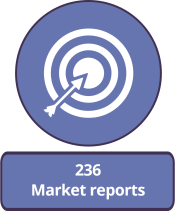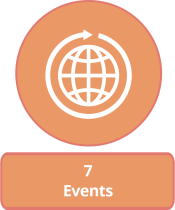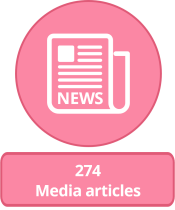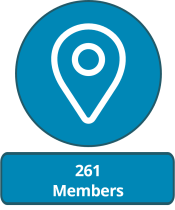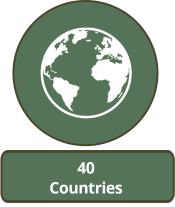Annual Report - 2024
Overview
 “2024 saw unprecedented growth across IFFO's work and outreach, with record breaking attended events, membership numbers, market reports, and press engagement. We are seeing the growing recognition of marine ingredients as both high value and strategically used ingredients, with wider industry debates becoming more complicated but evidence led. We continue to lead with science and industry discussions, with our peer reviewed papers covering the key discussion areas of sustainability metrics in feed, novel proteins and omega-3 futures, and involvement in leading projects such as the GFLI Data-In Project. Match this with our market intelligence work, covering data from 80 countries and across multiple markets, IFFO is providing a 360⁰ view of the marine ingredients industry. This report encapsulates our approach and achievements in 2024."
“2024 saw unprecedented growth across IFFO's work and outreach, with record breaking attended events, membership numbers, market reports, and press engagement. We are seeing the growing recognition of marine ingredients as both high value and strategically used ingredients, with wider industry debates becoming more complicated but evidence led. We continue to lead with science and industry discussions, with our peer reviewed papers covering the key discussion areas of sustainability metrics in feed, novel proteins and omega-3 futures, and involvement in leading projects such as the GFLI Data-In Project. Match this with our market intelligence work, covering data from 80 countries and across multiple markets, IFFO is providing a 360⁰ view of the marine ingredients industry. This report encapsulates our approach and achievements in 2024."
Petter Martin Johannessen, IFFO Director General
|
|
Contents:
| 1. Supporting our members | 4. Leading projects |
| 2. Events & Webinars | 5. Finance |
| 3. Outreach & Press | 6. Governance |
Supporting our members
IFFO continues to provide a unique range of services and benefits for marine ingredient producers and their related businesses. With 261 members in total, spanning 40 countries, IFFO membership is growing with 20 new Non-Producer and 1 Producer member joining in 2024. This success is echoed by the latest members survey, with 96% of members rating IFFO’s services as either excellent or good. The IFFO team visited members in China, Chile, Greece, Norway, Denmark, Peru, and Mexico.
Beyond the events and communications support, IFFO supports members through a wide range of projects and services, some of which are highlighted in the following:
Click on the icons below to explore more:


Market Coverage and Reports
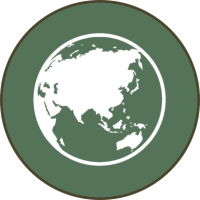

China
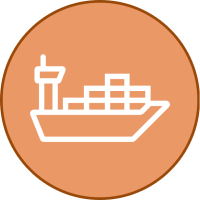

International Maritime Organisation (IMO) bulk shipping (IMSBC) maritime dangerous goods (IMDG) codes
Antioxidants are feed additives that are mainly used to prevent oxidation in animal feed and its ingredients such as fishmeal. Following the de-authorisation of ethoxyquin as an antioxidant for the feed sector in the European Union in 2022, work on the assessment of novel antioxidants was completed with a report available for members. The registration of tocopherols for the International Maritime Organisation (IMO) bulk shipping (IMSBC) code progressed and is now available on a voluntary basis from 1st January 2024. IFFO helped with a Peruvian submission to further amend the IMSBC code to remove the dangerous goods coding, a process which is being finalised.
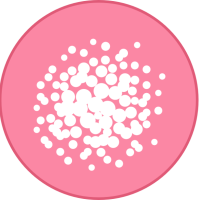

Microplastic Origins and Uptake
IFFO’s multi-partner project investigating microplastics in fishmeal and oil progressed with samples collected, animal trials and analyses completed and a final report in preparation. Preliminary findings have been presented to IFFO members via the Technical and Regulatory Network (TaRN). Fish trials completed in 2022 both showed negligible to no uptake by the fed animals or impacts on their health. A research paper is to be published by a peer-reviewed journal.
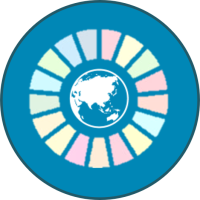

SDG Hub
IFFO’s SDG hub continues to grow with an impressive range of examples of how companies are both mitigating and adapting to climate change. It shows a wide range of action taken from across the industry and provides an important platform to share best practice. Visit the SDG hub
Stakeholder Engagement: Events & Webinars
In-person events:
IFFO organised 2 webinars and 5 in-person events in 2024, most notably the record-breaking Members Meeting held in Miami, the Annual Conference in Lisbon, and the China Workshop held in Xiamen city. With 220 members attending the Miami Members Meeting and a record 530 delegates attending our Lisbon Annual Conference from 43 countries, these events continue to be the leading gathering for the industry.
The Annual Conference featured close to 30 speakers, discussing feed ingredient strategies for the future, supply and demand for marine ingredients, feed ingredients industry beyond fishmeal and fish oil and explored the role which marine ingredients play in human health. The importance of social license to operate being essential was a key focal point, with the acknowledgement that earning and maintaining this requires collaboration and investment in fishery sustainability.
The conference programme was adapted to have three condensed half day sessions, with a range of side events held in the afternoons, to provide more choice to attendees. The event is carefully designed to present the market updates with challenges and opportunities, from across IFFO’s extensive network, along with a broadened scope to additional ingredients that are entering the feed markets. Optional side events were held by MarinTrust, GOED and the Global Roundtable on Marine Ingredients.
Our InFocus workshop series continued with an event held in Puerto Vallarta (Mexico) to discuss circular feed ingredients and how to optimise nutrient use through aquaculture, featuring leading experts from across the feed industry. A scientific paper will result from these discussions in 2025.
The 7th China Marine Ingredients workshop, was held in Xiamen city, China and was attended by over 100 participants. This workshop explored the value points and global market dynamics of marine ingredients from both a Chinese and global perspective. Discussions covered marine ingredient production in Asia, omega-3 demand, fishmeal quality controls, with in-depth focus on India, China and Peruvian markets.
Webinars
IFFO’s InFocus series continued with two webinars, the first provided an update on the emerging EU regulations on mineral oil hydrocarbons (MOH), what this means for fish oil producers and users, and where the sector needs to move towards next. This discussion was led by IFFO’s Technical Director, Brett Glencross and GOED’s Director of Technical Compliance & Outreach Gerard Bannenberg. The second InFocus webinar looked at how to increase the value and demonstrate responsible production of by-products, featuring Arnt Ove Kolås (COO Feed, Pelagia), Emily McGregor (Fisheries Manager, MarinTrust), and was moderated by Brett Glencross (Technical Director, IFFO). Speakers provided insights insights into the latest practices on the sourcing, traceability, production and utilisation of by-products.
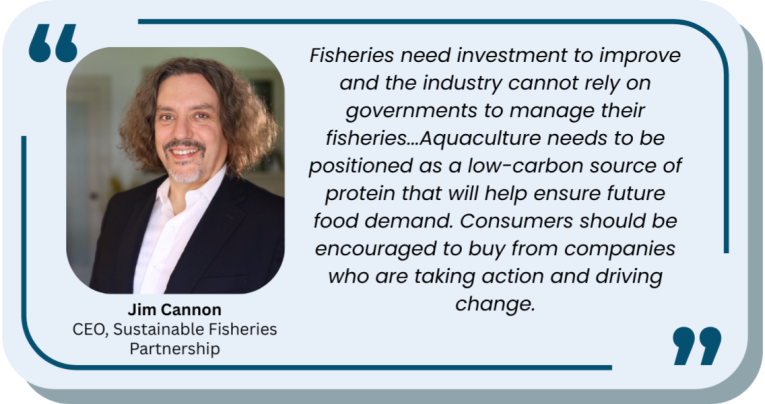
Representing the industry
Every year, IFFO represents the industry at events across the world, contributing the wider industry discussions and highlighting the important role of marine ingredients.
Click on the icon below to view the events that the IFFO team presented at in 2024


Events IFFO presented at:
| Wageningen University Aquaculture Nutrition Masterclass |
| GOED Exchange |
| NASF |
| DSM-Firmenich Aquaculture Workshop |
| FAO-OECD agri-commodities working group workshop |
| USGC Aquacultire Workshop |
| IFFO Members Meeting |
| Pelagic fish forum |
| International Symposium of Fish Nutrition and Feeding (ISFNF) |
| Nor-Fishing - konferansen 2024 - more fish from the ocean |
|
IN FOCUS Webinar - Understanding MOAH and MOSH |
| Aquaculture Europe |
| EFFOP Biennial Conference 2024 |
| The Aquaculture Rundtable Series (TARS) |
| Global Shrimp Forum |
|
IFFO’s 7th Marine Ingredients China Workshop |
| Foods of Norway : Final Workshop |
| IFFO Annual Conference |
| 16th FAO Fish Price Index workshop |
| IFFO InFocus Webinar - Increasing the value of by-products |
Stakeholder Engagement: Outreach
IFFO grows out of a fishmeal and fish oil industry need for collaboration, information and shared problem solving. Beyond IFFO’s efforts to facilitate cooperation and address shared commercial problems within the membership, IFFO constantly liaises with academia, regulatory bodies, governments, international organisations and industry press. IFFO provides a reference point for marine ingredients with the IFFO website, which features videos of experts, while also engaging stakeholders directly on social media via LinkedIn and WeChat, Bilibili, the Red, Weibo in China.
Press engagement
IFFO responded proactively to all media and NGO requests, while driving discussions on marine ingredients through 16 press releases, 26 opinion, 2 videos with international experts, and blog articles resulting in 274 pieces of global press coverage (up by 100 from 2023). The growth in coverage was largely driven by IFFO's focus on technical developments, with our peer review papers and event presentations, driving interest in the latest innovations and data for marine ingredients and aquaculture. IFFO actively engages on social media with over 5,200 followers on LinkedIn. In China, IFFO is active on 4 social media platforms and IFFO’s China vodcast series released on these platforms as well as on IFFO website have received 10,634 views by end of 2024.


The Global Roundtable on Marine Ingredients
Throughout 2024, IFFO participated in and held the role as Secretariat for Global Roundtable on Marine Ingredients, with active workstreams on West Africa and South and South East Asia. Representatives from IFFO and the South and South East Asia workstream took part in the Global Shrimp Summit in Chennai, India, to promote fishery management. The Global Roundtable continued the stakeholder mapping it started for West Africa’s fishmeal and fish oil value chain in 2023 with the Track the Fish report. Two workshops were held with a focus on West Africa’s fishery governance and management and synergies were explored with Fisheries Transparency Initiative (FiTI).
Find out more in the Roundtable’s Annual Report.


Science-based communications for a general audience


New Market Statistics
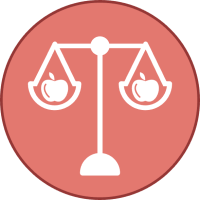

Work with the Global Feed LCA Institute (GFLI)
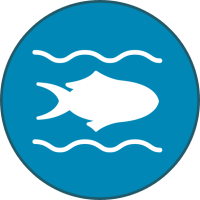

Journal: The evolution of sustainability metrics
Peer reviewed article published Reviews in Fisheries Science & Aquaculture: The evolution of sustainability metrics
Published date: 14th June 2024
Authors: Brett D. Glencross, Enrico Bachis, David Robb & Richard Newton
Abstract: A range of sustainability metrics have been proposed over the years that calculate the various efficiencies (and inefficiencies) of the use of feed in animal production (terrestrial livestock and aquaculture) and more specifically the utilization of the marine ingredient content of that feed. Like all metrics though, they come with some assumptions and are only as good as the reliability of the data feeding into them. The ones commonly used in the marine ingredients sector include eFIFO, FFDR, FIFO and FCR. In this review the basis of each of these metrics, aspects of their origins and each of their short comings is discussed. It is noted that many of these metrics fail to recognize the foundational role that marine ingredients play in supporting global “blue-food” production when misapplied. Subsequently an alternative strategy is proposed to assess the sustainability of marine ingredients based on a life cycle assessment (LCA) approach. With this shift we provide the reasoning behind this move toward a more transparent assessment process and how this will better support aquaculture to move forward by being able to assess the sustainability of the use of all feed ingredient resources on an equivalent basis.
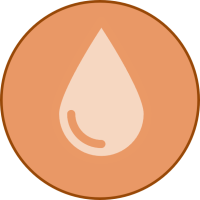

Journal: Omega-3 futures in aquafeed
Peer reviewed article published Reviews in Fisheries Science & Aquaculture: Omega-3 Futures in Aquaculture: Exploring the Supply and Demands for Long-Chain Omega-3 Essential Fatty Acids by Aquaculture Species
Published date: 1st September 2024
Authors: Brett D. Glencross, Enrico Bachis, Monica B. Betancor, Philip Calder, Nina Liland, Richard Newton & Bente Ruyter
Abstract: Long-chain polyunsaturated fatty acids (LC-PUFA), like 22:6n-3 (Docosahexaenoic acid; DHA) and 20:5n-3 (Eicosapentaenoic acid; EPA), are recognized for a range of important physiological roles in many aquaculture species. While the effects of EPA and DHA on a range of performance attributes and meat qualities are well recognized, an increasing awareness of their role in immune function, reproduction, bone formation and stress response is also emerging. Against this background of demand, global supplies of LC-PUFA are dominated by fish oil production from a diversified range of sources, though news sources are emerging. Among those aquaculture sectors that are the largest users of LC-PUFA resources (salmonids, shrimp, and marine fish), there are varying degrees of capacity by each to endogenously synthesize LC-PUFA and this affects the degree to which they must be obtained via the diet. Salmonids, which are the largest user of these nutrients possess some capacity to make EPA and DHA de novo, although evidence supports that salmonids perform better when provided with them preformed. Requirements by shrimp for LC-PUFA are variable, with evidence indicating that some species have capacity to desaturate and elongate fatty acids, whereas others do not. This is consistent with the observation that some species can utilize short-chain polyunsaturated fatty acids, whereas others need pre-formed LC-PUFA in their diet. A third group, marine fish, have limited ability to desaturate and elongate precursor fatty acids and therefore have a critical requirement for LC-PUFA in their diet. Evidence across multiple species indicates that demands for these fatty acids are greater when the animals are young, and this demand decreases as they age. Among the various marine fish species examined estimates of requirements vary substantially and a one-size-fits all approach is clearly not applicable.
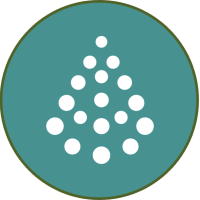

Journal: Novel protein SWOT analysis
Peer reviewed article published Reviews in Fisheries Science & Aquaculture: A SWOT Analysis of the Use of Marine, Grain, Terrestrial-Animal and Novel Protein Ingredients in Aquaculture Feeds
Published date: 24th February 2024
Authors: Brett Glencross, Xiaowen Ling, Delbert Gatlin, Sachi Kaushik, Margareth Øverland, Richard Newton & Luisa M. P. Valente
Abstract: A variety of new feed ingredients are emerging in the aquaculture feed sector. While the technology readiness of these options varies across and within the new ingredient classes, it remains important to consider them in terms of the overall feed ingredient spectrum. In this review, the use of marine, grain, terrestrial animal by-product and a range of novel (e.g., bacterial and yeast) resources being considered as potential protein feedstuffs for use in aquafeeds is explored. In comparing the nutritional attributes of each of the ingredient classes, an assessment framework is applied based on understanding the critical knowledge required to be able to accommodate any ingredient in a formulation process. To further examine each of the different ingredient classes a Strength-Weakness-Opportunity-and-Threats (SWOT) analysis is applied, to enable some consideration of what future potential may exist across the spectrum and what risks and opportunities they may bring. It is noted that all ingredients have strengths and weaknesses, and that there is no such thing as the perfect ingredient. By better appreciating the positives and negatives of each ingredient, it becomes possible to increase adaptability in responding to the various opportunities for their use in feeds.
Finance
Auditors’ opinion (Hillier Hopkins LLP – Chartered Accountants & Statutory Auditor): "We have audited the financial statements of IFFO (2012) Limited (the 'Company') for the year ended 31 December 2024, which comprise the Statement of income and retained earnings, the Balance sheet, the Statement of changes in equity and the related notes, including a summary of significant accounting policies. The financial reporting framework that has been applied in their preparation is applicable law and United Kingdom Accounting Standards, including Financial Reporting Standard 102 ‘The Financial Reporting Standard applicable in the UK and Republic of Ireland' (United Kingdom Generally Accepted Accounting Practice).
In our opinion, the financial statements, give a true and fair view of the state of the Company's affairs as at 31 December 2024 and of its loss for the year that ended; have been properly prepared in accordance with United Kingdom Generally Accepted Accounting Practice; and have been prepared in accordance with the requirements of the Companies Act 2006".
Click on the icon below to view the full accounts:


IFFO 2024 Accounts
|
Statement of comprehensive income for the year ended 31 December 2024 |
||
|
|
2024 |
2023 |
|
Turnover |
1,711,618 |
1,828,960 |
|
Gross profit |
1,711,618 |
1,828,960 |
|
Administrative expenses |
(2,058,775) |
(2,323,889) |
|
Other operating income |
903,331 |
711,099 |
|
Other operating charges |
(755,726) |
(572,925) |
|
Operating loss |
(199,552) |
(356,755) |
|
Interest receivable and similar income |
9,238 |
3,853 |
|
Interest payable and similar expenses |
- |
(64) |
|
Loss before tax |
(190,314) |
352,966 |
|
Tax on loss |
(4,443) |
21 |
|
Loss for the financial year |
(194,757) |
(352,945) |
|
Other comprehensive income for the year |
|
|
|
Currency translation differences |
(47,974) |
132,401 |
|
Other comprehensive income 1 |
12,418 |
(6,298) |
| Other comprehensive income for the year | (35,556) | 126,103 |
| Total comprehensive income for the year | (230,313) | (226,842) |
|
Balance sheet as at 31 December 2024 |
||||
|
2024 |
2023 |
|||
|
Fixed assets |
||||
|
Tangible assets |
334,903 |
354,605 |
||
|
Investments |
1 |
1 |
||
|
334,904 |
354,606 |
|||
|
Current assets |
||||
|
Debtors: amounts falling due within one year |
336,087 |
227,087 |
||
|
Cash at bank and in hand |
1,749,636 |
2,052,847 |
||
|
2,085,723 |
2,279,934 |
|||
|
Creditors: amounts falling due within one year |
(343,739) |
(327,339) |
||
|
Net current assets |
1,741,984 |
1,952,595 |
||
|
Total assets less current liabilities |
2,076,888 |
2,307,201 |
||
|
Net assets |
2,076,888 |
2,307,201 |
||
|
Capital and reserves |
|
|
||
|
Other reserves |
4,053 |
(8,365) |
||
|
Profit and loss account |
2,072,835 |
2,315,566 |
||
|
|
|
2,076,888 |
|
2,307,201 |
Governance
The Board of Directors of IFFO is made up of Directors from Producer members nominated by either individual countries or regions. Each director serves a 2-year term and is then eligible for re-election. Meetings are held at least twice a year, along with more regular meetings for smaller Liaison groups to focus on specific areas.
Click on the icon below to view the whole IFFO Board:


Board of Directors for 2024-2025 term
| Latin America: Adriana Giudice, José Miguel Tirado, Gonzalo De Romaña, Fernando Ribaudo, Walter Martinez, Felipe Zaldivar, Eduardo Goycoolea and Armando Coppel |
| Europe: Johannes Palsson, Egil Magne Haugstad and Johann Peter Andersen |
| USA & Canada: Dan James |
| Rest of the World: Andre du Preez and Mohammed Shawkath Showry |
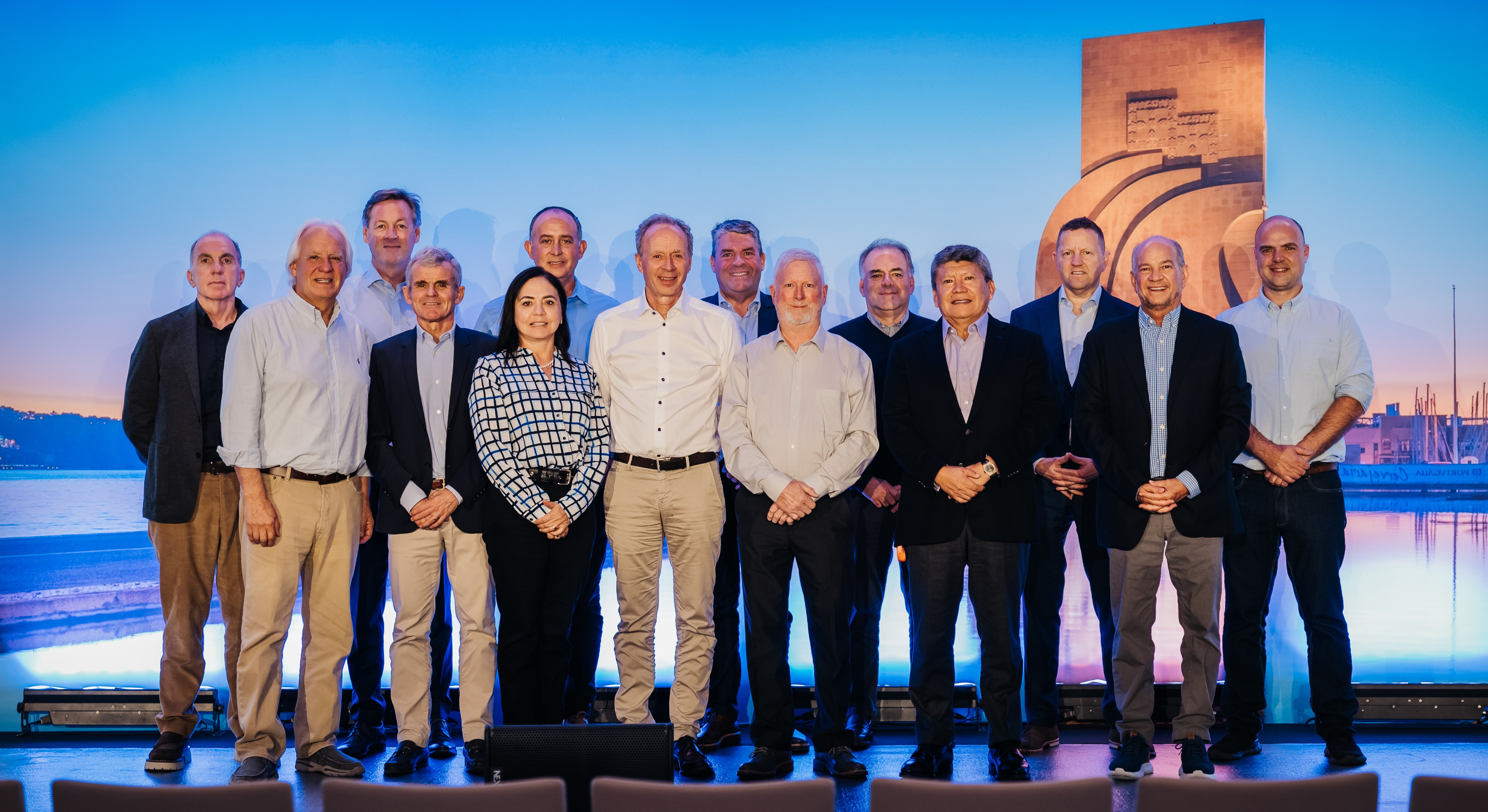
Back row (from left to right): Fernando Ribaudo, Petter Martin Johannessen, Gonzalo De Romaña, Johannes Palsson, José Miguel Tirado, Andre du Preez
Front row (from left to right): Eduardo Goycoolea, Felipe Zaldivar, Adriana Giudice, Egil Magne Haugstad, Dan James, Walter Martinez, Armando Coppel.









